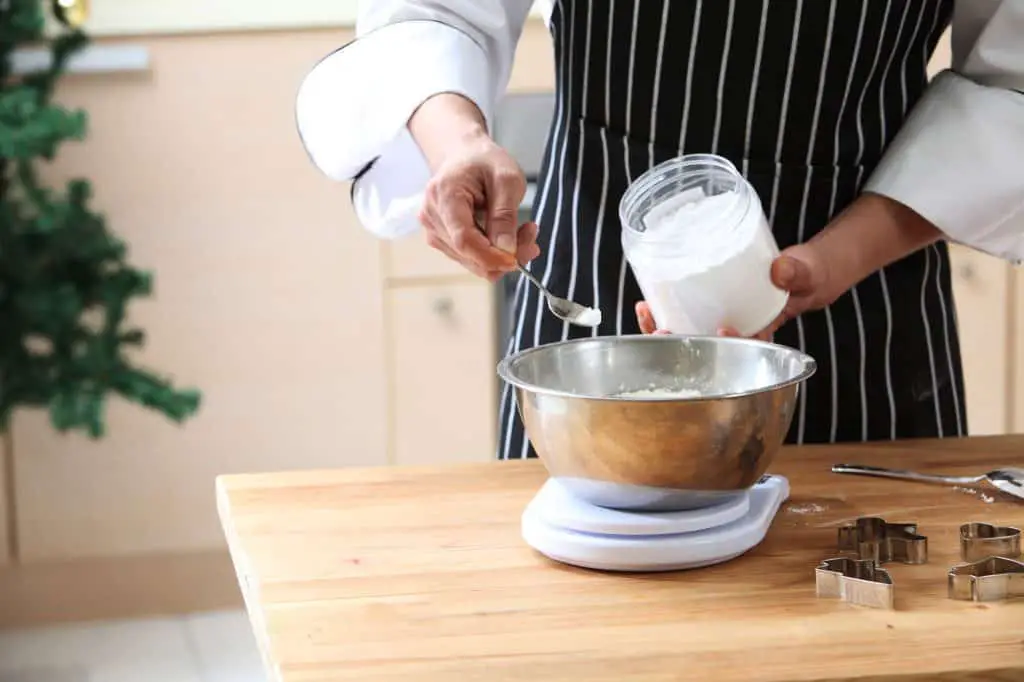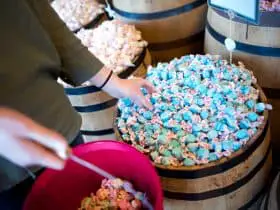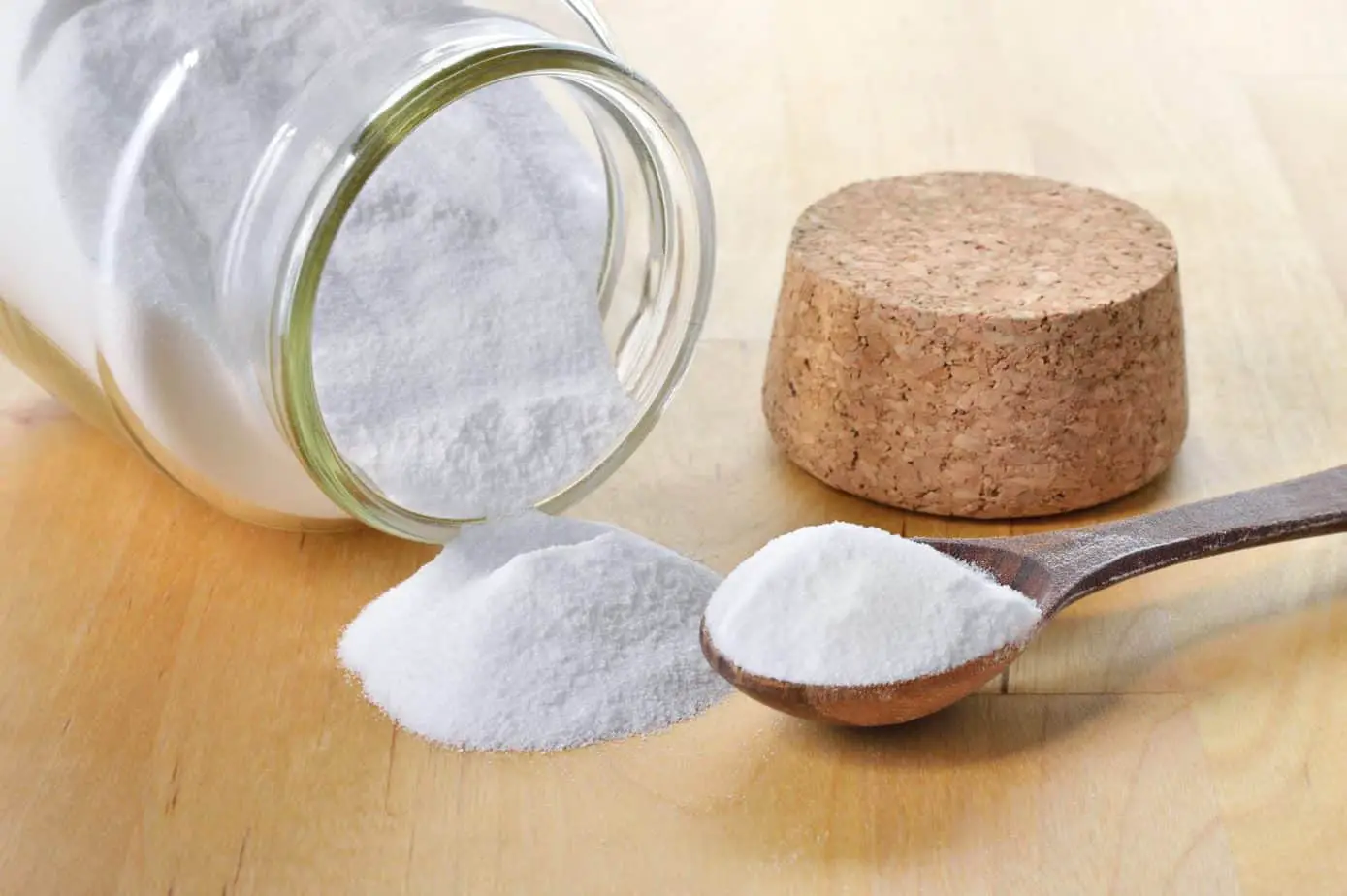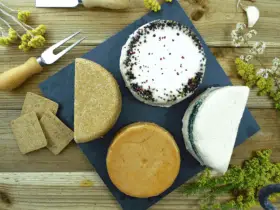Many things in this world are not what they are named. For example, cream of tartar is no cream at all! So what is cream of tartar exactly? And is cream of tartar vegan?
Well, popularly known as the baker’s best friend, cream of tartar is mainly a derivative of tartaric acid. Scientifically known as potassium bitartrate, this product is a child of tartaric acid which naturally exists in grapes and citrus fruits. As the source of the baker’s best friend is plant-based, of course cream of tartar is vegan. We know you are used to climaxes when it comes to vegan food products, here comes one for cream of tartar.
Why do some vegans find the production process of cream of tartar problematic?
A large number of vegans do not consider cream of tartar vegan because it is formed as a by-product of the wine making process. When the stage comes for grape juice to be fermented, potassium bitartrate crystals are formed as precipitates at the bottom of the wine barrels. You can also find these wine diamonds on the undersurface of corks of full bottles of wine.
The problem lies in the fining agents used in wine production. Fining agents may or may not be derived from animals. But oftentimes, they are animal-based. Bone marrow, casein, albumin, gelatin, and chitin are some of the examples of the substances used in the fining process of wine.
The purpose of fining agents is to eliminate unwanted reducible by products from the wine. These unwanted substances include some types of protein, yeast, some undesirable flavour or colour, and the cloudy texture which makes wine appear less pleasing.
It is true that vegan fining agents are also used by many producers of wine. Substances like bentonite clay, limestone, kaolin clay, and silica gel work excellently in reduction of unwanted impurities. But it is indeed important for a vegan to know where their cream of tartar comes from.
If we begin to wonder, the non-vegan substances used in wine production cannot at all be deemed acceptable.
You will definitely not be okay with the use of bone marrow in your food’s production
Many poor and innocent animals are needlessly killed to attain the bone marrow from their limbs and ribs that works as a fining agent.

God help with the extensive use of dairy products in food processing
The chief protein found in milk, casein, is used to decrease the bitterness in wine by reducing the phenolic compounds that accumulate in it.
As dairy is one of the chief food types vegans tend to avoid, this practice is not suitable for their lifestyles.
No vegan looks again at foods that contain eggs
Albumin derived from egg whites has a tendency to bind to all the tannin present in the wine and to soften its texture. This also serves to clear the cloudiness initially created in freshly fermented wine. Eggs are a big turn off for vegans when it comes to food.
We definitely do not want sea animals to suffer for our leavening
A product called chitin tends to render the proteins in wine more stable by its ability to bind to chitinases. Chitin is obtained from the shells of crustacean animals. Although some sort of chitin is also obtained from fungal sources, we do not know which is which in the industry so vegans consider it all non-vegan.
We do not look again at the foods that contain gelatin
Never. You must be aware of how gelatin is produced. It is obtained by boiling animal skins, bones, tendons, and ligaments in water to attain a translucent substance that offers a chewy consistency to all those non-vegan candies you avoid. Gelatin used in the fining process of wine serves to decrease its bitterness and offer it the perfect flavour.
Use of fish products in seemingly harmless baking powders is another evil of this world we cannot ignore
Isinglass is a type of gelatin obtained from the outer membranes of fish bladders and it is more popular amongst white wine makers where it decolorizes wine glamorously into the perfect shade. Some wine makers even use fish oil. Of course this is a problem.
You must also be aware about the use of blood in some types of wine. Although that would usually be prominently mentioned on the label but we never know what goes into our wine’s production back at the distillery.
There are some brands of cream of tartar that do specify that their product is vegan and does not involve production from barrels of wines that use animal products. It is important to be cautious when it ain’t really possible to go back and trace the fining agents.
It is important to note that many wines do not use animal products in their production and some may also use the vegan and animal free methods or fining agents as we have mentioned above.
So which trusted brands offer vegan cream of tartar?
These brands verify the lack of contamination by any animal based or non-vegan products in their cream of tartar. As a bonus, their cream of tartar is gluten free too. Have a look:
- Pure Cream of Tartar
- Earthborn Elements Cream of Tartar
- Natural Craft Cream of Tartar
- Judee’s Gluten free Cream of Tartar
We know you are curious about how your certified vegan cream of tartar may come handy in your kitchen. We researched for you and for ourselves to list the various applications, benefits, and purposes of the cream that ain’t cream.
Where in a vegan’s life does cream of tartar come handy?
Certainly everywhere. In more places than you know of. It is present in most cosmetics, in medicines, and in most household products. But that’s not it. You can use this product for a variety of purposes.
- Cream of tartar as leavening: Baking powder is composed of baking soda, cornstarch and a source of acid. Sometimes the source of acid is already available as an ingredient in the recipe so plain baking soda can be used instead of the baking powder. In case the recipe does not contain any acidic constituent, baking powder comes to the rescue.
Cream of tartar is often present as this acid in the baking powder. This combination helps in the production of carbon dioxide in the batter which escapes and raises our cake. And the best part is, the cake will be as white as some famous pastry chef’s much applauded cake. People will be pleasantly surprised to know it is vegan and some vegans might hound you inquiring whether you’ve added eggs in the recipe.
- Cream of tartar as a crystallization preventing agent: Cream of tartar has the ability to split sucrose into fructose and glucose. This property makes sure that sugar syrups do not crystallize and your desserts remain as fashionable as ever.
- Cream of tartar as a color preservative: Many vegetables lose their color after boiling which naturally makes them appear less pleasing or even satisfactory. Cream of tartar could make your guests go gaga over the ethereal aesthetics your cooked food has to offer their eyes.
- Cream of tartar as a thickening agent: This magical ingredient also has the ability to thicken your food and make it appear less cakey. This property is intensively useful in increasing the density of soups and other liquid foods. As cream of tartar does not absorb any moisture or provide any discernible flavour of its own, the taste of the foods remains unchanged. You can seriously pump up that boring potato soup by adding some cream of tartar. A few small chunks of this magic ingredient will have your guests dreaming how you manage to work so hard in making restaurant style (or even better) soup at home! I love making vegan meringues too at home and the cream of tartar goes into it as my secret ingredient. My friends wonder how I make such cloud like meringues all by myself and no one will ever know unless they read this article.
- Cream of tartar has many applications for non-vegan purposes too although you wouldn’t require them for keeping the egg whites stable or maintaining the volume of whipped cream.
So is Cream of Tartar Vegan or not?
Fellow vegan, by now you must be used to unforeseen climaxes when it comes to choosing food. Cream of Tartar is vegan according to the criteria acceptable to most vegans. But the use of animal products in the production process may render it liable to scrutiny by many. Bone marrow, fish oil, egg albumin, isinglass, gelatin, and chitin are names not easy to digest.
A certain guilt is associated with using food products that are often plant based but built on the path of animal cruelty and slaughter. If it saddens you, vegan options and brands of cream of tartar are easily available in many supermarkets and they do give an assurance of zero contact with any animal based substances during production.
We hope you enjoy all the cakes you raise with your vegan cream of tartar!












Leave a Reply